Trash into Treasure: A Vision for an East Flatbush Dumping Ground
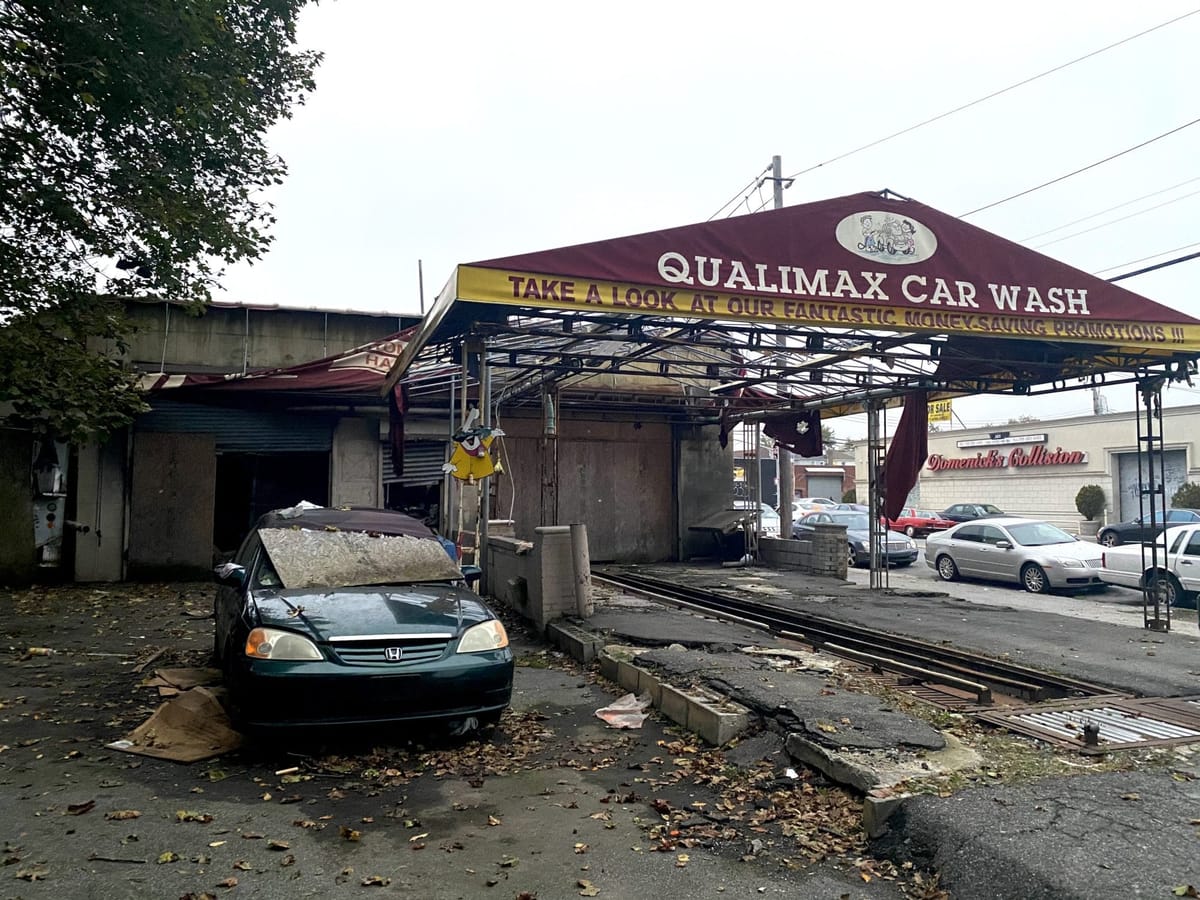
A large, faded sign hangs on the graffiti-laden facade of Qualimax Car Wash in East Flatbush advertising its grand opening specials. It’s one of the many unkempt remnants of a business that long closed its doors, along with dozens of totaled cars and trash piled high in the unoccupied building.
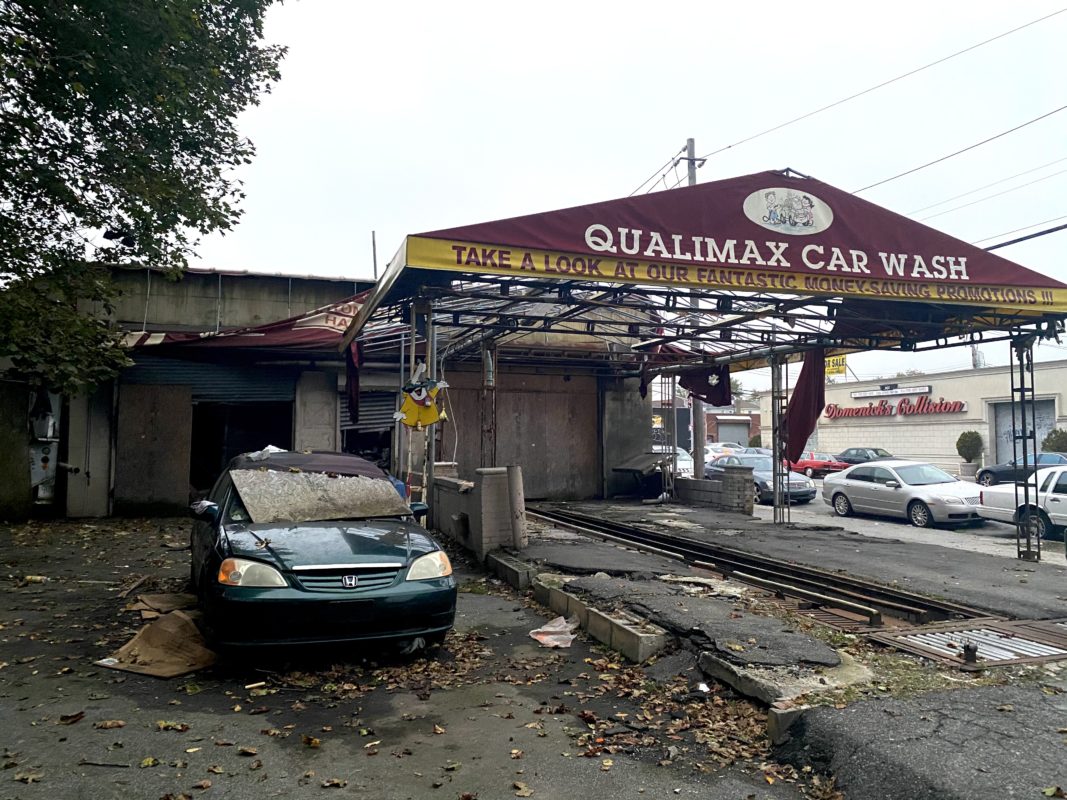
The Department of Buildings currently has 14 complaints on the property that cite worries from concerns about the fire threat it poses to its numerous broken and exposed windows. With no doors or fence, the skeleton of the business promotes an ever-growing pile of trash, and not just some old paper and newspapers. The trash here includes items like heavy machinery, tires, and old furniture.
Sakia Fletcher, a member of Black Lives Matter Brooklyn, helped a community clean-up effort that took place on the building’s lot recently after the hoards of illegal dumping there were called out in a tweet by Brooklyn Borough President Eric Adams. “The car wash itself had a lot of debris, dumped cars and space,” Fletcher says. “That’s a big space that’s only being used to dump trash.”
The car wash, and the land that surrounds it, is notorious for its continuous cycle of clean-up, more dumping, and clean-up again. The most recent of which was organized by candidate for Council District 45 Anthony Beckford.
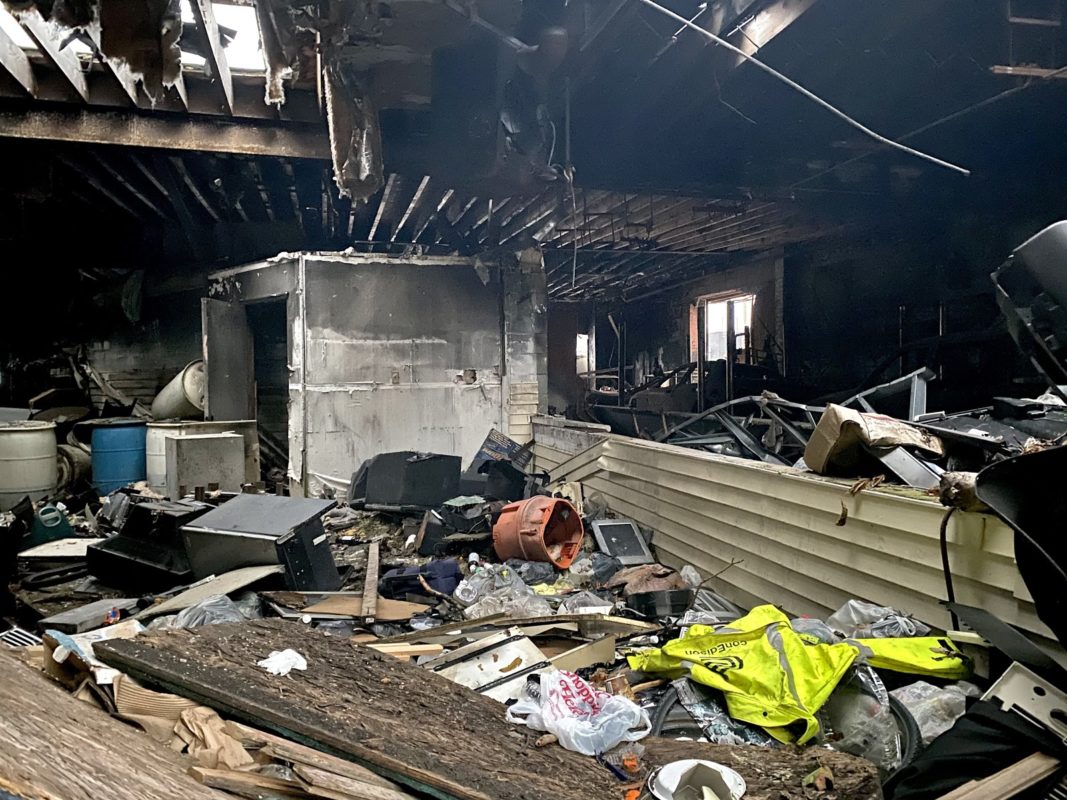
“We made a whole day out of it,” Beckford says. “What was originally a two-hour project turned into a six-hour project.”
Beckford is just one person in the community thinking about the future of Qualimax and other buildings like it. If elected into office, he wants to work on legislation that would make it easier for the city to repossess buildings, like Qualimax, which Beckford says are “basically abandoned and affecting the quality of life of communities.”
He says he wants a bill that would ensure buildings like these “are removed from the hands of the owner who is not taking care of it and putting it in the hands of the city.”
Currently, the city’s process of acquiring abandoned property is rigorous.
“While I fully support local residents who want to see this lot repurposed, it is an arduous process to transfer ownership of abandoned property in the City of New York,” says Councilwoman Farah Louis who represents East Flatbush. “These measures are in place to ensure fairness, due process, and thoroughness.”
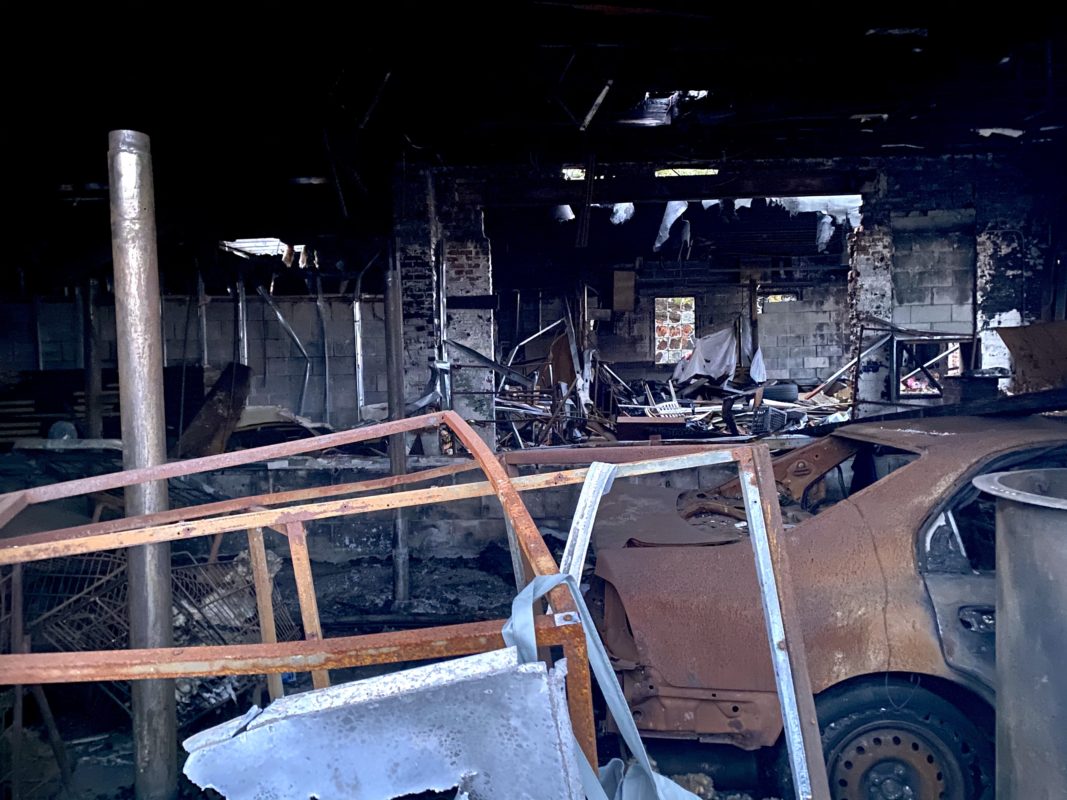
Despite the efforts of dedicated community members, the car wash, and the land around it, continue to be hazardous for East Flatbush residents. Calls for fences around the property haven’t been answered and access to the cameras on site is complicated, only perpetuating the continued trash build-up.
Qualimax is located in an industrial business zone, surrounded by other similar businesses, mostly auto body shops. The car wash currently has a full vacate order on it that dates back to September of 2019, which means the city deemed it unfit for occupancy.
But it’s unclear who the owner of Qualimax actually is because it’s registered under an LLC, not uncommon for many NYC buildings. Records show that the mortgage on the building has been satisfied and Qualimax’s hefty $14,680 property tax bill is still being paid.
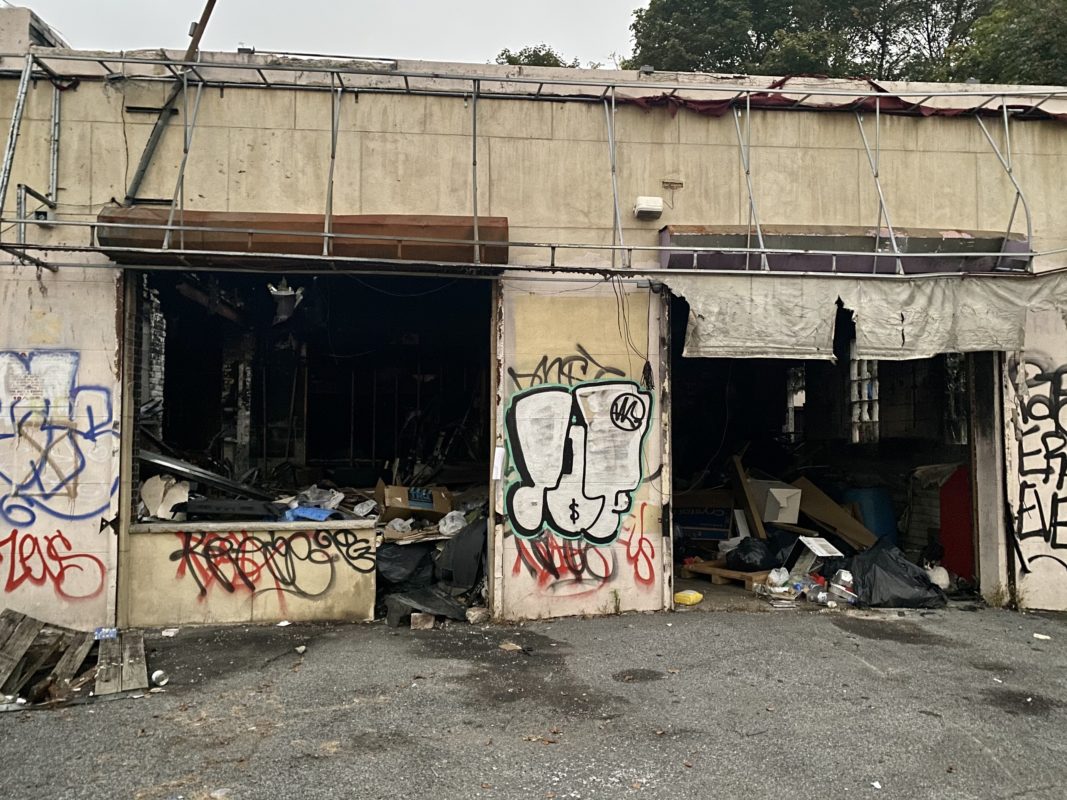
Andrew Rudansky, of NYC Department of Buildings, says that since the building is private property, it’s hard for the city to do much more than issue fines, unless it’s causing a danger to the public. “Hypothetically, if [a building] looks like it’s posing an immediate hazard, we do have the legal authority to issue what’s called an emergency declaration,” he says.
The Department of Buildings was able to issue two emergency declarations on the site after a court order to demolish the building was secured on October 19th, 2020. Plans are currently being drawn up to safely do so, at the owner’s expense. In the meantime, one of DOB’s emergency declarations is to seal the building with concrete masonry blocks, says Rudansky, in order to secure the building and protect the public.
Through the whole process of dealing with the vacant space, the owners have been unresponsive to violations and hearings called by the DOB, who won by default several times because Qualimax’s owners did not show up.
The community is questioning the owner or owners’ intentions of paying for a business that isn’t turning a profit.
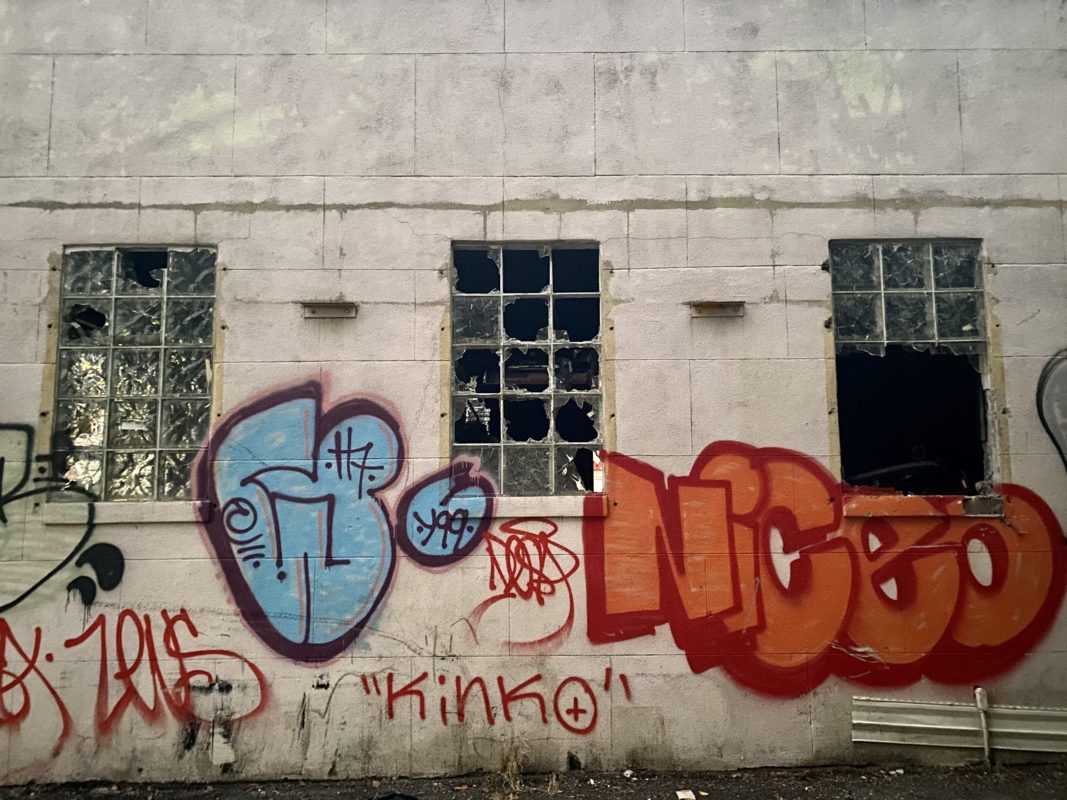
While the owners may have one plan for the lot, some neighborhood locals have another. Pastor Gil Monrose, a member of the 67th Clergy Council “GodSquad”, an organization that acts as a liaison between the community and the NYPD’s 67th precinct to address the area’s gun violence, envisions the space as not only a headquarters for his team but a resource for the neighborhood. He thinks it would be great to house a community center where children can come have a meal or hang out together. A safe space in a neighborhood that has become wrought with an uptick in violence.
Pastor Monrose and a team of other community members are coming together to try to acquire the space. “I have no idea who owns it,” Pastor Monrose says. “But I know who can own it.”
He’s hoping with the support of local elected officials and the community, the area will no longer be a neighborhood dump. “We’re getting ready to send a letter to the state and the city to lay out a plan of action for the property.”
Though not yet approved, Pastor Monrose is hopeful their vision will be realized, and with the help of funding from government grants and private fundraising, the community will no longer have to live with the dangers and repercussions of illegal dumping.
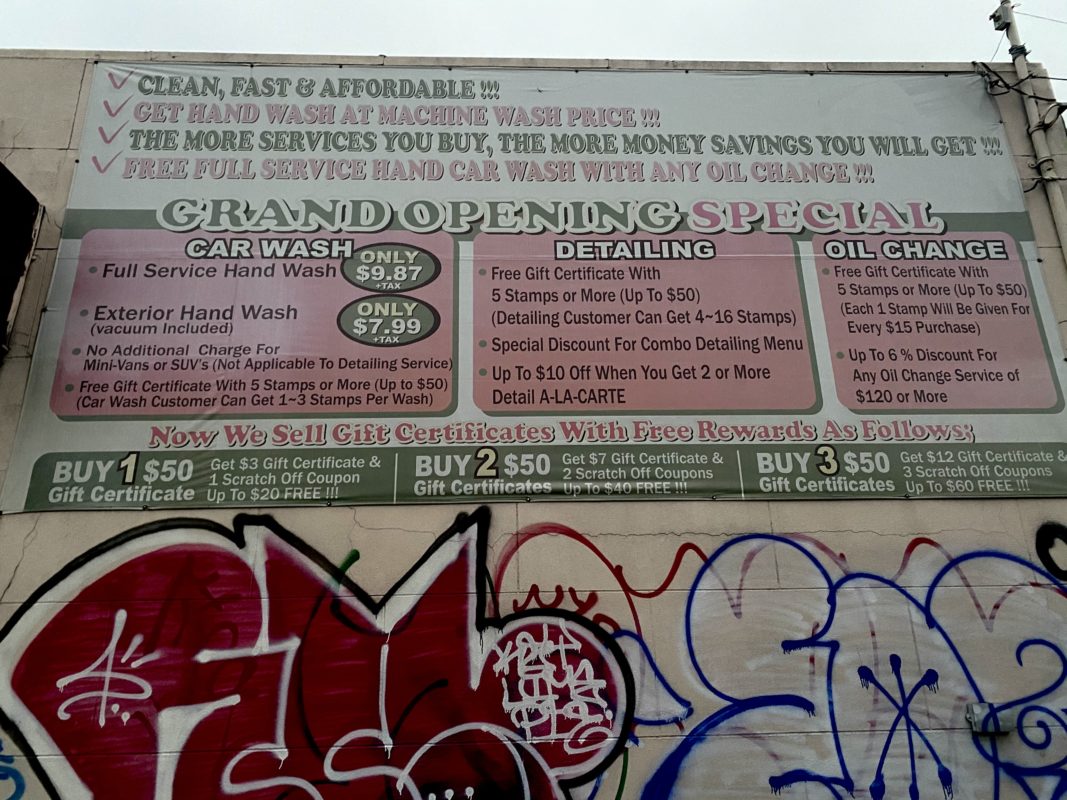
“I look forward to working with Brooklyn Community Board 17 to identify the next steps in envisioning the future use of this lot, should the judicial system decide that the City may reclaim the property,” says Councilwoman Farah Louis. “In the meantime, we are organizing community volunteer cleanups to supplement our agency-level efforts.”
For Pastor Monrose and the GodSquad, the idea of bringing the neighborhood together toward a common goal is encouraging. “When you can use the property to help with young people, to develop them, to create opportunities for upward mobility,” Pastor Monrose says, “I think everyone in the community would agree on it.”



